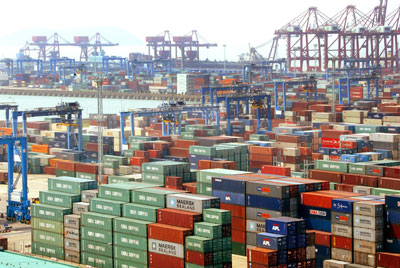(Ecns.cn)--Wei Wei, who had been shopping at H&M in Beijing, tried on a skirt made in Bangladesh and two T-shirts made in Indonesia. "It's not surprising," she said. "I bought a pair of Nike shoes made in Vietnam last year."
Not so long ago, all of those products bore the logo "Made in China."
But China is gradually losing its status as the "the workshop of the world" as its labor becomes more expensive and industries shift their manufacturing contracts to other nations.
Businesses leaving China
If US author Sara Bongiorni admonishes her family to keep away from "made in China" products like she did six years ago, she may have an easier time of it now.
In the fiscal year of 2010, 37 percent of Nike shoes were made in Vietnam, compared with 34 percent made in China, according to Nike's annual report. Another 23 percent were made in Indonesia and 2 percent in Thailand.
"This was the first time for the amount of Nike shoes made in other countries to exceed those made in China," an international trading insider told the International Herald Leader. "However, industries that are sensitive to labor costs had changed their manufacturers many years ago."
In addition to products such as clothing and footwear, many IT, automobile and electronic parts companies have moved their manufacturing to other Southeast Asian countries.
Foxconn, one of the world's largest electronics manufacturers and the maker of well-known products such as Apple iPhones and Dell computer parts, is considering moving some plants to India and Vietnam, according to Wei-Liang Chen, chairman and chief executive officer of the Taiwan-owned company in 2010.
Wintek Corporation, a Taiwan-based manufacturer of liquid crystal displays (LCD), said in April that it plans to invest $100 million to $150 million to build plants in North Vietnam. The new plants will produce touch screens for the iPhone and iPad. The company also said it was considering shifting or reducing the output of its plants in the mainland due to surging costs.
Japanese Mitsubishi Heavy Industries also announced it would improve cooperation with India and may start building cars there.
"In the next five years, people will see more and more 'Made-in-USA' products as enterprises reduce their investments in China and return to the US," said Hal Sirkin, senior partner and managing director at The Boston Consulting Group.


















